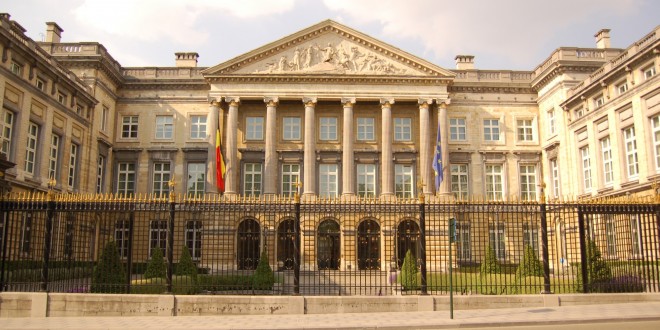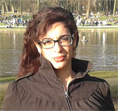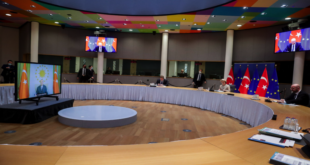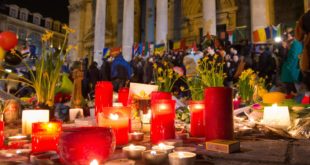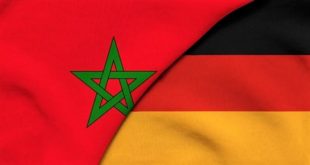In order to tackle social divisions, Belgium must address shocking inequalities and fundamentally reform its discriminatory education system.
Belgium has more jihadist fighters per head than any other European country. They are mostly “second-generation” Moroccans. They are Belgian officially, but they do not feel like they are. They are young, frustrated and angry.
They grew up in a rich country but they never had access to that wealth.
Why? Because the school system of French-speaking Belgium has one of the worst social-promotion records in Europe[1]. Moreover, Brussels suffers from a uniquely high degree of urban segregation. What does this mean in concrete terms? If you came from a poor and under-educated family living in a disadvantaged area of the city, you do not have much chance to improve the quality of your life. This deep division and exclusion is far less discussed than the “radicalization” of second-generation Muslims, yet the latter phenomenon cannot be understood without an appreciation of the former.
The Historical context
To better understand why Belgium has an extraordinary multicultural environment today, we need to look back to the 1940s, when Belgium needed manpower to work in its mines. The first to arrive were German prisoners, then Italian workers, mostly from the South of Italy, in particular from Sicily. In 1956, something happened that changed the course of history there: the Marcinelle catastrophe, in which 262 out of 275 workers died, 136 of them Italian. After this disaster, the Italian government decided to stop sending workers to Belgium. Nonetheless, mines needed manpower, and new bilateral agreements were signed. Thousands of Moroccan and Turkish workers were sent to the mines to offer their labour to the Belgian State. As we can see from this brief summary, Belgium built its society on its migrant workforces, importing labourers like it had previously imported prisoners to exploit in its mines. This was the harsh reality, the effects of which are still visible in Belgian society today.
Early Muslim migrants and consequences for the second generation
In 1956, the year of the Marcinelle catastrophe as well as the year of Morocco’s Independence, figures show that there were approximately 2 million children in Morocco, but only 10 percent attended elementary school and only 15,000 boys were in secondary education. There were no girls at the secondary level and only 350 students reached university. These data tell us that almost all the immigrants from Morocco who came to Belgium to work were illiterate.
As a result, second-generation children face multiple problems when starting their studies: low cultural capital at home; a limited knowledge of the host language (for themselves as well as their parents); and parents unable to help them with their homework. Moreover, they came from a different cultural background that could have different assumptions and expectations with regards to the relationship between school, family and society, but nonetheless was extremely important in the language used for self-expression and in the perception of reality.
To better understand this last point, we may consider an example used by social anthropologist Ilaria Micheli[2]:
“The Inuit have about twenty words to indicate the color of the snow. It is true that they are able to distinguish twenty different shades of what we would term indiscriminately white, but this is not because they have a different genetic perception from ours; they are simply accustomed to training their eye to recognize shades, which is indispensable for them”
All this means is that people from different cultural backgrounds and in different positions of privilege and subordination within society inevitably see that society in different, often contradictory ways. To understand why second-generation Muslims are becoming “radicalised”, we need to understand how Belgian (and, more broadly, European and Western) society looks from their subaltern perspective.
The Education system in Belgium
As already mentioned, the school system of the French-speaking Belgium provides an education with one of the lowest social-promotion rates in Europe.
According to the study “Gaspillage de talents”:
“One of the main conclusions extracted from analyzing the PISA[3] 2009 data is of little comfort to the educational systems in Belgium and for certain families and their children (…) Schools continue to transform social inequalities into educational inequalities”.
“[Today it is quite clear that] the differences between school results from indigenous students and those students raised in immigrant families can be explained in a large part – or almost entirely – by the socioeconomic position of parents and the language spoken at home”.
Unless you believe that this gap in school performances can be ascribed to genetics, that is, unless you are racist, it is clear that the problem stems from a lack of support in terms of social policy.
Unfortunately, as is well known, the Belgian school system is characterized by a high degree of segregation. Segregation, again, is associated with parents’ social class and adds to ethnic segregation related to the parents’ national origin. According to the report cited above, “this phenomenon is mainly the result of a process of desertion of some urban schools by ‘Belgo-Belgian’ [that is, white Belgian] pupils”. As a consequence, we have unintentionally produced a framework which creates a separation of target groups, creating a severe lack of diversity in schools and classrooms. The high level of correspondence between economic background and school performance is shown in the graph below:

Inequalities and subject-specialisation in schools
Speaking against the practice of channeling school students towards different subjects or areas of study has become a sort of taboo. Those who do so are often accused of wasting pupils’ natural talent, wanting to decrease the level of school education in order to support students with a poor performance, or worse, of forcing pupils to study subjects they do not want to. Contrary of these suppositions, the reality, as we will see, is something else entirely.
The manner in which careers advice is given is particularly questionable in the francophone context of Belgium. In the words of one study:
“Many assume the existence of and the strong demand for many advisory services for school and professional careers. However this is not the case. Careers advice, coupled with selection, takes place most often in an informal fashion, even though public and private organizations, supposed to bring their help in that [formal] matter, actually exist. In many cases, most notably at the beginning of secondary school, careers advice and selection are very closely connected to the “conseils de classe” notifications, commonly called “attestations d’orientation” [“careers advice certificates”]. In fact, these certificates are nothing more than a kind of “ticket” to go on academic courses or, alternatively, to leave this highly prestigious path for currently far less esteemed vocational studies”[4]
In countries, like Beligium, with early school orientation to “technical sectors”, social inequalities are significantly greater. Moreover, there is a strong connection between the extent of social inequality among students and the duration of the common curriculum. The best results seem to be achieved in school systems which are considered to fall under an “Individualized integration model”, especially in the systems of Nordic countries (Denmark, Finland, Sweden, Norway, Iceland). They do not practice early division of students to “technical” and “academic sectors”, are distinguished by a rate of very low exam failure and separate pupils according to skill levels to only a limited extent.
In short, early subject selection seems to produce more negative effects then positive. In fact, it generates social inequalities, fails to improve the average performance of students and creates narrow and closed social elite. Given Beligium’s colonial history and the extent to which ethnicity correlates with economic and social inequalities, these biases within the school system have a clear racial aspect, which in turn overlaps to a large degree with the country’s Muslim population. As such, from a very early age, second-generation Muslims are in effect segregated from the white majority, with little hope of crossing this divide later in life.
Freedom for some, segregation for others – the “quasi-market” education system
The term “quasi-market” was originally used by Julian Le Grand[5] to describe a series of public service reforms introduced in the late 1980s[6]. The reforms were market-like because they introduced a split between the purchasers and providers of public services and competition between providers (schools). The “quasi-market” system is currently applied in Belgium. Schools work according to a logic of economic competition, and competition is stimulated by legal provisions, school strategies and parents. The freedom to choose schools of contributes to the segregation of the education market along economic and ethnic lines.
The studies of Christian Maroy [7] have found that:
“schools adhere to a logic of complementary differentiation. Thus, certain schools are known for receiving pupils and others for turning them away. The ‘open’ schools receive young people who have exhausted all enrolment possibilities (after restreaming, repeating a year or expulsion). The ‘closed’ schools reserve places for the pupils who meet the criteria of educational excellence”.
Maroy also shows how the hierarchy of schools is built on ‘reputations’ and social representations conveyed by social networks. The competition of this quasi-market produces an educational apartheid, due to the fact that the division is both social and ethnic in Brussels. In the words of another study[8]:
“Free choice makes it possible for wealthier neighborhoods to access to more socially advantaged schools than those which enroll their students with less [social and economic] capital. These findings, which Depart analyzes as attributing to residential and school segregation, open up questions about the regulations needed to encourage more diversity”
Far from opening up the education system, the “free choice” of the “quasi-market” system in reality reproduces and reinforced inequalities and divisions, resulting in a de facto segregation along class, ethnic and religious lines.
Urban segregation
Why do we speak about urban segregation? First of all, because it directly affects second-generation Muslims, who suffer more than any other group from the consequences of socioeconomic polarisation and urban segregation. As reported in a recent study:
“This [urban segregation] is particular true for young inhabitants of Brussels descended from [largely Muslim] working classes immigrants, who have low incomes and educational levels[9]”.
Secondly, as already mentioned, there is a strong correlation between residential segregation and school segregation.
The “Brussels Cosmopolitan map[10]”, which divides Brussels into neighborhoods according to the ethnic background of inhabitants, was conceived by the Open Flemish Liberals and Democrats party in Belgium. While the map was harshly criticized, it is nonetheless accurate. The hypocrisy of the criticisms is thus unacceptable. Like it or not, Brussels is exactly as it is shown on that map, with inhabitants who rarely move from a block to another and several so-called “no-go zones”, as specified in Time article cited above.
As another commentator notes:
“Then there is the poverty gap: although Brussels is one of Europe’s richest cities, there are pockets of deprivation. Particularly vulnerable are the city’s large foreign-born communities, members of which often feel trapped in a downward cycle of poor education and low social mobility. More than 30% of the population is foreign-born, concentrated on the north and west side of the city, in the Molenbeek, Saint-Josse and Schaerbeek communes[11].”
This poverty gap is more than visible in Brussels. The starkness of the divide is easily noticeable walking between different areas of the city. You can observe huge differences in rent levels and urban hygiene, with some poor areas such as Anderlecht appearing almost as a different city, as well as in food prices even within the same supermarket chain, for example between branches in Saint-Josse and Etterbeek.
Conclusions
Coming from a European Country highly affected by the economic crisis, like Italy is, I thought we had a lot to learn from Belgium. However, the reality turned out to be different from my expectations. Seeing huge disparities, abandoned neighborhoods, social injustices and poverty in the capital of Europe was disturbing.
As a “second-generation” migrant myself, I can state very clearly that early school subject-specialisation has already generated a significant number of social injustices, and it should be urgently reviewed. My concern is that there is no real desire to change the current framework. There are several brilliant European social policies, such as “early parenting support”, that we can use to improve the quality of all newborns’ lives. There are also exemplary education systems, like in Finland, where nearly all the students succeed and there is no early school subject-specialisation at least until 16.
Unfortunately, no one seems to take advantage of all this knowledge or of studies that academics and others have conducted. This does not mean that no progress whatsoever has been made. But it appears that we – and I am talking now as a European – are not prepared to confront all these social, economic and cultural differences without producing more inequality and social suffering. Unless we address these problems at the heart of our societies, we cannot expect divisions between “native” Europeans and “second-generation” Muslims to decrease. We cannot demand that Muslims and other marginalised minorities integrate into “mainstream” society, while simultaneously and systematically denying them any avenue through which to do so.
[1] See graph ‘Performance and equity’ below
[2] Dialogni neomamme: una ricerca socio-antropologica nelle Valli Imagna e Brembana, Centro Studi Valle Imagna, p. 29, 2012
[3] The Programme for International Student Assessment (PISA) is a worldwide study by the Organisation for Economic Co-operation and Development (OECD) in member and non-member nations of 15-year-old school pupils’ scholastic performance on mathematics, science, and reading.
[4] Revue international d’éducation de Sèvres 38 (avril 2005) “Les défis de l’orientation dans le monde” Marc Demeuse et Dominique Lafontaine “L’orientation scolaire en Communauté française de Belgique”
[5] Julian Le Grand has been the Richard Titmuss Professor of Social Policy at the London School of Economics since 1993
[6] “The development of quasi-markets in secondary education”, Institute for Government, November 2012
[7] Maroy, C. (2006). École, régulation et marché : une comparaison de six espaces scolaires locaux en Europe. Paris, France : Presses universitaires de France
[8] La ségrégation scolaire, reflet déformé de la ségrégation urbaine Différenciation des milieux de viedes enfants bruxellois, Bernard Delvaux et Eliz Serhadlioglu, October 2014
[9] Synopsis nr. 9 Young people in Brussels: social inequality and cultural diversity A. Rea, C. Nagels, J. Christiaens, Brussels Studies, 2009
[10] See more : http://blogs.rtl.be/carnetpolitique/la-carte-bruxelloise-de-lopen-vld-est-elle-raciste/
[11] Brussels, Civilized E.U. Capital, Rattled by Crime Wave By Leo Cendrowicz / Brussels Tuesday, June 08, 2010
 ForMENA Council for MENA affairs
ForMENA Council for MENA affairs
